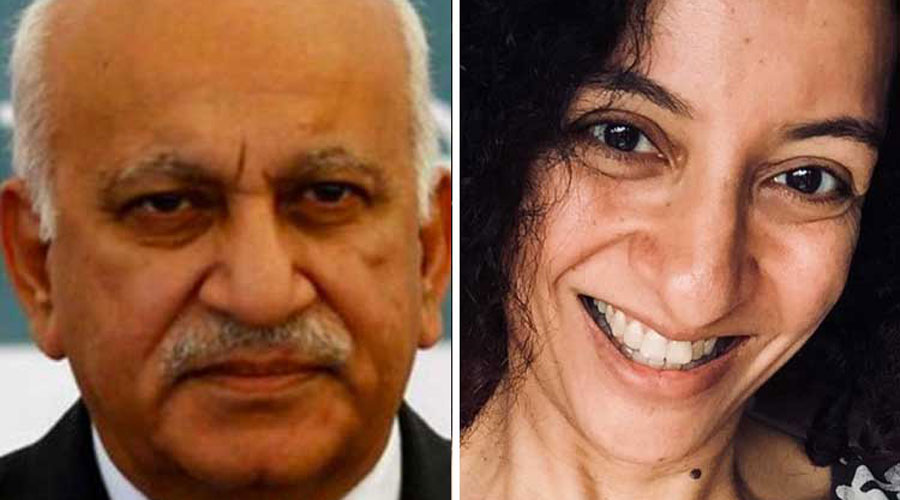Sir — A Delhi court’s acquittal of the journalist, Priya Ramani, in the criminal defamation complaint filed by the editor-turned-politician, M.J. Akbar, will embolden survivors of sexual harassment at workplaces to speak up (“Akbar’s defamation suit is tossed out”, Feb 18). The court has rightly observed that the ‘right to reputation’ cannot be protected at the cost of the right to life and dignity of a woman, and aptly applied constitutional safeguards of right to equality and equal protection before the law to acquit Ramani of the wrongful charges against her. But it is still ironic that it was the victim, not the perpetrator, who was made to stand up in court as an accused.
This verdict has given fresh impetus to the #MeToo movement, which seemed to have lost some of its momentum. The Delhi court’s observation that a woman has the right to put forward her grievances before any platform of her choice even after decades is of great import in this context. Besides retaliation from influential or powerful offenders, it is the fear of infamy and stigma that forces victims to keep suffering in silence for years. The first step towards asafer, more equal, future would be to create an enabling environment for women to speak about their ordeal. There is also a need to raise awareness about the legal weapons at their disposal — take, for instance, the Sexual Harassment of Women at Workplace (Prevention, Prohibition and Redressal) Act, 2013. Implementation of the law in letter and spirit can act as a strong deterrent.
N. Sadhasiva Reddy,
Bangalore
Sir — Priya Ramani’s acquittal is a defining moment in the fight against sexual harassment in the workplace. By exonerating Ramani, the Delhi court has not only foiled M.J. Akbar’s attempt to silence and intimidate her, but it has made other influential men with power rethink using legal action to hide news of their misdemeanors against women. The former Union minister was accused of sexual misconduct by a handful of women journalists around two years ago as part of the #MeToo movement, and the allegations had forced him to resign from the Union cabinet. It is an encouraging sign that women are courageously coming forward to talk about their experiences of sexual harassment. They are fearlessly naming their abusers. Her acquittal and the court’s words will motivate more women to come forward with the truth and hopefully make the society we live in a safer place for women.
Ranganathan Sivakumar,
Chennai
Sir — Be it in the media, as in the case of Priya Ramani, or any other domain, the reality that many women suffer in silence in the face of sexual harassment, especially in the early stages of their career, has been brought to the fore by the new-found space and freedom to share their experiences created by the #MeToo movement. Yet, even as Ramani was acquitted, there are still thousands of other women who have neither the resources nor the means to speak up against their oppressors.
Ramani is fortunate enough to be literate and to have at her disposal weapons like social media that enabled her to stand up to her abuser. Can a woman labourer working in the kilns of Uttar Pradesh or the fields of Bengal or Bihar do the same? If children and daughters are not safe in their homes, one can only imagine the plight of the women who come to work for us. While the verdict in this case is encouraging, a lot more needs to be done to make all women feel safe and equal in the eyes of the law.
K. Jana,
Calcutta
Bound no more
Sir — The bindi has social media in a bind. While most are cheering the Nasa scientist who sported a bindi during the landing of the American rover on the red planet, others have raised eyebrows over why a bindi, which has many superstitions attached to it, should be something to celebrate. The simple answer is choice: the bindi is no longer a red dot to ward off the evil eye; its absence is not tied to the fate of one’s husband. It is a style statement — it comes in all shapes and colours and even varied states like solid and liquid. The bindi thus no longer binds the woman.
A. Sen,
Calcutta











